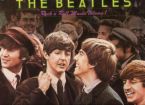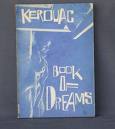 The Emergence of the Gnostic Gospels
The Emergence of the Gnostic Gospelsand its Implications for our Faith
In 1945, an important discovery was made in the caves near a town called Nag Hammadi. An Arab peasant had stumbled upon a large earthenware jar (perhaps the first undocumented geocache? jk!) and smashed it open, hoping it contained treasure. What spilled out was not gold, but 13 papyrus books bound in leather.
The peasant did not recognize the importance of what he was seeing. In fact, some of the pages were burned by his mother in her hearth when she was kindling the fire. At some point, some of the texts left the hands of this peasant and were sold in the black market, eventually piquing the interest of Professor Gilles Quispel, distinguished historian of religion at Utrecht, in the Netherlands, who was able to translate the coptic text. Further translation and relevant discussion has continued from the 1970s to the present day, with the most popular translation being James Robinson's 1978 book shown to the left.
Researchers have dated these books to have been written somewhere between 80 and 200 AD, but some biblical scholars now believe that the most likely date is around 140 AD. During the first and second century, all or some of these books and the teachings within them influenced a certain small portion of the developing Christian faithful, who became known collectively as "gnostics".
As the Christian faith developed, it became important to make decisions on the books that would become part of the New Testament and on the foundations of the faith. With the rising power of the "catholic" faith and orthodox school of thought, these "gnostic" books became ousted and were believed to be heretical. The books disappeared and were supposed to be destroyed by the rising orthodoxy.
Certainly some of the ideas presented in the gnostics texts could be considered threatening for the orthodox believers. In general, the gnostic texts suggested that the path to the Divine was through self-knowledge, which in effect could eliminate the function of the church itself.
In addition, certain books, (i.e. Gospel of Phillip), suggested that Jesus did in fact have a special relationship with Mary Magdalene, which in effect could change the perception we have of Jesus as a divine one free of mortal desires and sin, and placing him more in line with the rest of humanity.
"...the companion of the Savior is Mary Magdalene. But Christ loved her more than all the disciples, and used to kiss her often on her mouth. The rest of the disciples were offended... They said to him, "Why do you love her more than all of us? the Savior answered and said to them, "Why do I not love you as I love her?"
"Gnosticism" as a sect of faith asserts that "direct, personal and absolute knowledge of the authentic truths of existence is accessible to human beings," and that the attainment of such knowledge is the supreme achievement of human life. The Gnostics as a collective were not much interested in dogma or coherent theology. They cherished the ongoing force of divine revelation, rather than a specific creed.
Carl Gustav Jung, the great Swiss psychologist and a life-long student of Gnosticism in its various historical permutations, stated,
…We find in Gnosticism what was lacking in the centuries that followed: a belief in the efficacy of individual revelation and individual knowledge. This belief was rooted in the proud feeling of man's affinity with the gods....
There are some other ideas out there on what it means to be a "gnostic" in terms of belief, but I want to leave that alone for now. I will say that it seems like there is some conflicting information out there. What I want to focus on is what the gospels themselves mean for today's Christian.
Initially upon reading about the suppression of these gospels by the orthodox christianity in its formative years, I felt misled. I felt that we were not given all the materials by which to determine our faith. We had some of the pieces, and we fit them together and said, "hey, here is the image of God we were trying to create", when really half the pieces were slid under the table, and so the image we got was skewed.
I understand, though, that during this time, a time when the New Testament was being created, when it was being decided which items and books belonged in our faith and which didn't, that decisions had to be made in order to create a cohesive organized faith. Without some kind of system, Christianity might not be around today. There were many choices on directions to go, and although it seems like the reasons for choosing which books belonged and which didn't were arbitrary and subjective, at some point someone had to decide something. In this case, it is theoried to be church leaders in the time of Emperor Constantine who decreed that these texts were non-canonical, and therefore heresy.
At that time, it was vital that these texts drop from the scene, and I myself am glad that they were stashed away in a safe place and not simply destroyed. I do think there is some cosmic signifigance to the timing of their unearthing. At this point, I think Western civilization and/or Christianity is at the point where we are willing to accept them and look to them for a greater understanding of God, salvation, and truth. Before this time in culture, I don't think our civilization was ready to handle this information, and perhaps these books would have been unearthed only to be destroyed.
This is not to say that our culture as a whole has developed to the point where we are completely open to new and contradictory ideas on faith. If that was so, jihad would not exist and we would not still be hunting bin Laden in the desert. However, on today's society, and particularly in western culture, there is less emphasis on the importance of maintaining strict theological barriers. We marry between faiths, something that was not possible in the time the gospels were written and even for centuries afterwards. We accept that people have different religious beliefs based on a variety of ideas. Even within Christianity, there are so many sects with differing beliefs on so many issues that re-introducing new ideas is not as threatening, even if t
 hey challenge some of our most basic premises.
hey challenge some of our most basic premises.If there was any question on how the ideas presented in the Nag Hammadi library might change faith, one might just look at the success of the Da Vinci Code and if it has influenced the ideas of contemporary christians, since many of the ideas presented in the book/film were drawn from these ancient texts.
When I first read some of the excerpts from Elaine Pagels' introduction to the Nag Hammadi texts, The Gnostic Gospels, I was thinking that the collective ideas presented were reminscent of the trancendalists, or eastern esotericism. The emphasis on approaching the divine through self-knowledge seemed to me to be related to the the eastern religions, and also had shades of Judaic mysticism. That made it all the more appealing to me, since I have been drawn to those lines of spiritual thought in the past. To me, the books found at Nag Hammadi bridge the gap between eastern and western religions, and open a door to a more complete picture of truth, a door I welcomely open.
I long to read and learn more on this subject, so as I learn, so will you.


 In the book Misquoting Jesus, the Story behind Who Changed the Bible and Why, by Bart Ehrman, the author explains the history of the New Testament and how it was changed over the ages. This is from the perspective of a biblical scholar who has devoted his life to the study of this issue. At one point in the book, the author details information about various scholars who have spoken up about the variations of the Bible over the years. During the sixteenth and seventeeth century, there were those who would like to discourage this kind of textual criticism, because of the fear that this might cause people to lose their faith in the Bible.
In the book Misquoting Jesus, the Story behind Who Changed the Bible and Why, by Bart Ehrman, the author explains the history of the New Testament and how it was changed over the ages. This is from the perspective of a biblical scholar who has devoted his life to the study of this issue. At one point in the book, the author details information about various scholars who have spoken up about the variations of the Bible over the years. During the sixteenth and seventeeth century, there were those who would like to discourage this kind of textual criticism, because of the fear that this might cause people to lose their faith in the Bible.

























